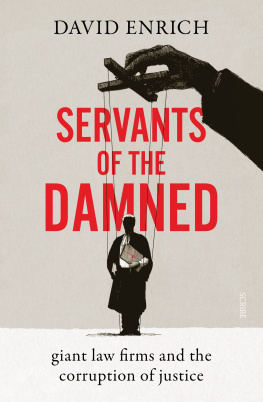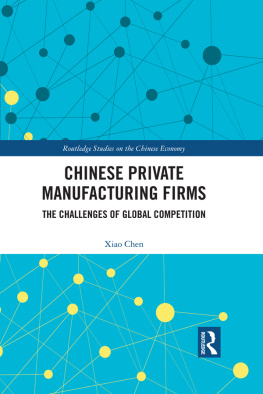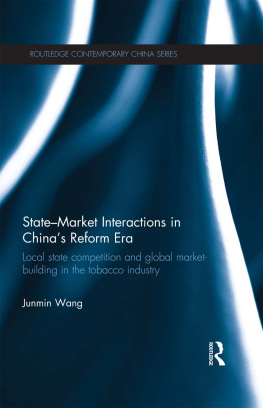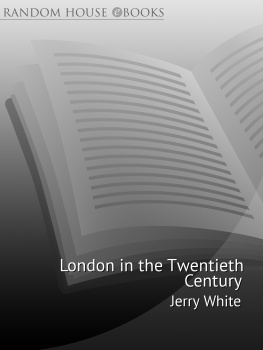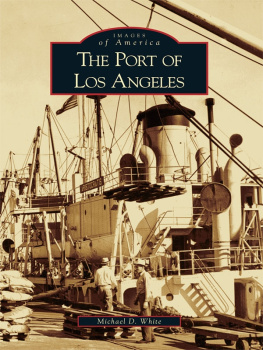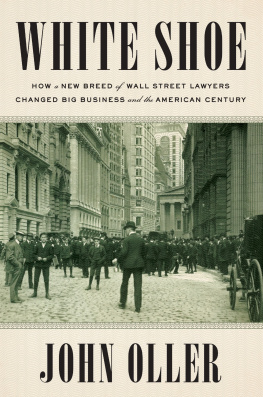Jeremiah D. Lambert, a nationally recognized lawyer who has advised clients in the electricity and natural gas industries, also served as co-chairman of the Board of Directors of Global Crossing Ltd. during that companys reorganization and thereafter as a member of the executive committee of the Board of Directors of its post-bankruptcy successor. Mr. Lambert is the author of The Power Brokers, a narrative history of the electric utility industry in the United States (published by MIT Press in 2015), How Deregulation Went Wrong (2006), and Creating Competitive Power Markets: the PJM Model (2001), among other books and publications. Mr. Lambert, a member of the New York and District of Columbia bars, commenced his legal career in New York City as an associate at Cravath, Swaine & Moore and later practiced as a co-founder of Peabody, Lambert & Meyers in Washington, D.C. and as a partner in several national firms. He is a graduate of Princeton University, a former Fulbright Scholar, and a graduate of Yale Law School. He is married to Sanda Kayden Lambert and resides in Palm Beach, Florida.
Geoffrey S. Stewart is a Washington-based lawyer who handles complex commercial and international litigation. He attended Brown University, where he received his AB (honors) and AM degrees in European history and was elected to Phi Beta Kappa. Mr. Stewart received his legal training at Harvard Law School and began his legal career at Davis Polk & Wardwell in New York and Washington, D.C. He served as a deputy assistant attorney general of the Department of Justices Office of Legal Policy in 19821983 and was associate counsel to the Office of Independent Counsel Iran/Contra from 1987 to 1991. Mr. Stewart was a partner of the firm Hale and Dorr from 1986 to 1999 and a partner of the firm Jones Day from 1999 to 2018.
Aalders, Gerhard, and Cees Wiebes, Stockholms Enskilda Bank, German Bosch and I.G. Farben. A Short History of Cloaking, Scandinavian Economic History, vol. 33, no. 1 (1985), pp. 3334.
Acheson, Dean, Fragments of My Fleece (George J. McLeod Ltd., 1971).
Ahamed, Liaquat, Lords of Finance (New York: The Penguin Press, 2009).
The Albany Journal, September 16, 1887.
Alger, George W., Review of the Cravath Firm and Its Predecessors: 18191947, American BarAssociation Journal, vol. 1, no. 5 (May 1947).
Alger, George W., The Cravath Firm and Its Predecessors, American Bar Association Journal, vol. 31, no. 5 (May 1947), pp. 48082.
Alvey, Lori J., The War of the Currents: Examining the History BehindThe Last Days of Night, Kentucky Bar Association (June 14, 2018).
Americas Devious Dream: Roosevelt and the Panama Canal, BBC History Magazine, November 2006.
Ameringer, Charles D., The Panama Canal Lobby of Philippe Bunau-Varilla and William Nelson Cromwell, The American Historical Review, vol. 68, no. 2 (January 1963), pp. 34646.
Armstrong, Robert, New York, Once the City of Dreamers, is Now Dangerously Dull, Financial Times, Life & Arts, p. 4, June 2930, 2019.
Arnold, Thurman, The Folklore of Capitalism (New Haven, CT: Yale University Press, 1937).
Auerbach, Jerold S., From Rags to Riches: The Legal Profession, Social Mobility and the American Jewish Experience, American Jewish Historical Quarterly, vol. 66, no. 2 (December 1976), pp. 26162.
Auerbach, Joseph, The Bar of Other Days (New York: Harper & Brothers, 1940).
Auchincloss, Louis S., A Voice from Old New York (Boston: Houghton Mifflin, 2010).
Auchincloss, Louis, The Great World and Timothy Colt (Boston: Houghton Mifflin, 1957).
Baird, Douglas G., and Robert K. Rasmussen, Boyds Legacy and Blackstones Ghost, Sup. Ct. Rev. (1999), pp. 393, 4018.
Baltzell, E. Digby, The Protestant Establishment: Aristocracy and Caste in America (1964).
Bangs, Francis S., Leading Lawyer, Dies, New York Times, March 3, 1920, p. 11.
Barbas, Samantha, When Privacy Almost Won: Time, Inc. v. Hill, University of PennsylvaniaJournal of Constitutional Law, vol. 18 (2015), p. 528.
Barbas, Samantha, The Esquire Case: A Lost Free Speech Landmark, William & Mary Bill ofRights Journal, vol. 27 (2018), pp. 32125, 351.
Berfield, Susan, The Hour of Fate: Theodore Roosevelt, J. P. Morgan and the Battle to TransformAmerican Capitalism (Bloomsbury, NY: Tin House Books, 2020).
Berle, Review of Beryl Harold Levys Corporation Lawyer Saint or Sinner? The New Role of the Lawyer in Modern Society, Harvard Law Review, vol. 76, 432 (1962).
Bird, Kai, The Chairman (New York: Simon & Schuster, 1992).
Borkin, Joseph, TheCorrupt Judge (Clarkson N. Porter, Inc., 1962).
Bowman, Cynthia Grant, Women in the Legal Profession from the 1920s to the 1970s: What Can We Learn From their Experience About Law and Social Change? Maine Law Review, vol. 61 (2009), pp. 67.
Bradley, Robert L Jr., Edison to Enron (Beverly, MA: Scrivener Publishing, 2011).
Brandeis, Louis D., Other Peoples Money (New York: Frederick A. Stokes Co., 1914).
Bratton, William W., and David A. Skeel Jr., Bankruptcys New and Old Frontiers, 166 University of Pennsylvania Law Review, vol. 166, no. 7 (June 2008), pp. 157679.
Brian, Denis , Pulitzer: A Life (New York: Wiley, 2007).
Bromley, Bruce, Judicial Control of Antitrust Cases, Proceedings of the Seminar on ProtractedCases for United States Judges, 23 F.R.D. (1958), pp. 41718.
Brown, Henry Collins, Glimpses of Old New-York (New York: Lent & Graff, 1917).
Brown-Nagin, Tomiko, Identity Matters: The Case of Constance Baker Motley, ColumbiaLaw Review, vol. 117, no. 7 (November 2017), pp. 170712.
Bruck, Andrew, and Andrew Canter, Supply, Demand and the Changing Economics of Large Law Firms, Stanford Law Review, vol. 60, no. 6 (April 2008), p. 2090.
Bruck, Connie, and Alan Dershowitz, Advocate, The New Yorker, July 29, 2019.
Burrows, Edward G., and Mike Wallace, Gotham (Oxford, UK: Oxford University Press, 1999).
Carlisle, J. M., The Cowboy and the Canal (London: Tangent Publishers, 2014).
Carosso, Vincent P., The Morgans (Cambridge, MA: Harvard University Press, 1987).
Carosso, Vincent P., A Financial Elite: New Yorks German-Jewish Investment Bankers, American Jewish History Quarterly, vol. 66, no. 1 (September 1976), p. 85.
Carson, Ralph, Davis Polk Wardwell Sunderland & Kiendl, A Background with Figures, (Privately published, n.d.).
Castigliola, Frank C., Anglo-American Rivalry in the 1920s, The Journal of Economic History, vol. 37, no. 4 (December 1977), p. 914.
Castigliola, Frank, The United States and the Reconstruction of Germany in the 1920s, TheBusiness History Review, vol. 50, no. 4 (Winter, 1976), p. 476.
Challener, Richard D., John Foster Dulles: The Princeton Connection, The Princeton University Library Chronicle, vol. 50, no. 1 (Autumn 1988), pp. 2123.
Chernow, Ron, The House of Morgan (New York: Grove Press, 1990).
Chetverikova, Olga, Oriental Review, April 13, 2010.
Chung, Renwei, High Minority Attrition Rates Continue to Plague Large Law Firms, Above the Law, March 11, 2016.
Close, John Weir, The Lucky Sperm Club: Jews, M & A and the Unlocking of Corporate America, PBS News Hour, January 2, 2014.
The Commercial & Financial Chronicle, vol. 74 (William B. Dana Company, 1902).
Crane, Daniel, The Dissociation of Incorporation and Regulation in the Progressive Era and the New Deal, in Corporations and American Democracy, Naomi Lamoreaux and William J. Novak, eds. (Cambridge, MA: Harvard University Press, 2017).


